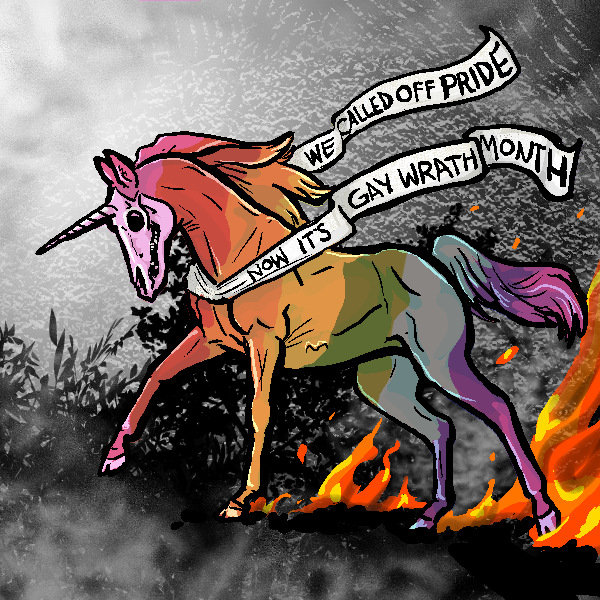Most of the people I know, even if they have some issues with American capitalism, think is seems to work pretty great at "creating wealth" (these are all middle-class white folks, fwiw). They look at their relatively spacious houses, abundance of cheap consumer goods, two cars, etc and think yeah, this is all pretty great, thank you capitalism.
What I've tried to impress on them is a.) this wealth is due in no small part to exploiting workers in the global south, and b.) this wealth is also do to unsustainable exploitation of the environment.
So assume that this data is accurate - that we are using up the equivalent of 5 times the resources of earth. Current US annual GDP per capita is about $65k. Does this data mean that about 80% of this GDP or $52k is based on unsustainable exploitation of the environment? That what they attribute to the miracle of capitalism is really just ripping everything we can out of the planet? I get that GDP /= consumption, but I feel on a national level is near enough to make no difference. And even if 5X is high... say it's only 2X after making various adjustments. That still means HALF of what we attribute to capitalist wealth creation isn't about capitalism at all, just unsustainable greed (which is, of course, definitely capitalism)?
GDP is a bad measure of this. TBH, GDP is a bad measure of most of the things people use it for.
theres a smbc comic like this, two economists go out to an exposed rock pile in the middle of the ocean with a computer that rapidly exchanges a single byte of data between them, thus making it the wealthiest nation ever.
Edit: Found it
I doubt this is based on GDP. I went to the site - https://www.footprintcalculator.org/ and it's based on ecological footprint.
Most of the things on those footprints are out of the consumer's control - if there is no public transit you cannot abstain from driving. If there is no access to renewable energy, you consume what you are given, and the consumer cannot control how far the food must travel to get to them.
However, it's worth noting here that India has the highest percentage of vegetarians on the planet and only 17% of their energy is renewable. Considering a quarter of global emissions come from food and half of those from animal products, it's no surprise that a hundreds of millions of people refraining from putting dead bodies in their mouths contributes to a lower emission footprint.
https://www.bbc.com/news/science-environment-46459714
https://en.wikipedia.org/wiki/List_of_countries_by_meat_consumption
Amerikkka is right up at number one that list with 98 kilograms of dead animal/person, then next is aussie with 94. Russia's sitting at 60 kg of dead animal, Germany at 88, and Switzerland at 74. India is at the bottom with 4 kg/person.
I'm sure that's not the only reason Amerikkkka's is so high and India's is so low but it does impact things significantly the scale is having to raise and kill trillions of animals for millions of people.
http://css.umich.edu/factsheets/carbon-footprint-factsheet
Food accounts for 10-30% of a household’s carbon footprint, typically a higher portion in lower-income households. Production accounts for 68% of food emissions, while transportation accounts for 5%.
ehhh yes but only in the framework of capitalism. if you believe this is the most efficient allocation of resources, absolutely it is unsustainable. even in best case, its still going to be unsustainable, but there is also just an obscene amount of waste because of the profit motive. 40% of food is wasted in the US, 11% of housing is vacant, etc. while these metrics will never be perfect, there is a hell of a lot of room to improve.
Wouldn't this be assuming absolutely no changes to the way we generate power? What would those numbers look like if we replaced all fossil fuels (Edit: used for electricity and transport) with solar/wind/nuclear/etc?
A huge contributor beyond fossil fuels is meat consumption. which America leads the world in. This is probably why India is so low compared to other countries with lower emissions because meat consumption is significantly less common there.
Eliminating the transport of food for one year could save the GHG equivalent of driving 1,000 miles, while shifting to a vegetarian meal one day a week could save the equivalent of driving 1,160 miles.
Transportation is still the biggest effector followed by energy generation, but about 10% still comes from livestock.
That's still from fossil fuels though... If we replaced all fossil fuels the "contribution" of meat consumption would go down with it. If only 10% comes from livestock (assuming you mean cow farts), then that's a 90% reduction in that sector's emissions without changing anything about our consumption from that sector.
The problem is that our entire food supply is intertwined with fossil fuels. Without fertilizer and pesticides, the American agricultural sector would collapse. The amount of meat production we have now is impossible without fossil fuel powered industrial processes.
It's a highly complex problem and a massive shift away from industrial agriculture is needed to leave fossil fuels behind without starving millions of people.
What? Fertilizer and pesticides aren't fossil fuels.The effect of replacing every vehicle used for transportation with electric, and replacing every Watt-hour of electricity used with green energy would be much higher than any effect cow farts, fertilizer, and pesticides have. And both of those replacements are 100% compatible with changing nothing else about the industry.
Most emissions attributed to a lot of industries are purely about electricity and transportation, not the industries themselves.
Bro. Fertilizer is made with natural gas. Natural gas either extracted through fracking or as a waste product of oil extraction.
Pesticides are a chemical product created in chemical factories that get their base chemicals from oil byproducts. There are ways to create fertilizer without fossil fuels, but not to the scale needed for industrialized farming.
So yes. There will need to be a massive shift in diet if there's a shift from fossil fuels.
Ok fine. But fossil fuel or not they are still an extremely small amount of emissions compared to electricity and transportation. I know I said fossil fuels but I basically meant electricity and transport (and maybe heating). Those are where the focus should be.
Again if you change those we would have a very significant reduction in emissions without changing our diets. Do you at least acknowledge that?
I never said we shouldn't. Just said that meat is a huge contributor to fossil fuel consumption and is basically one of the primary reasons we aren't switching. Without those byproducts, America starves.
This is also coming from someone who is by no means vegan, I just know how fucked it is that our entire food supply is so mixed up in fossil fuels.
russia is quite the resource hog considering its level of development. Now this is something libs can be mad at them for
It's mostly due to oil extraction, conveniently ignoring the fact, that most of it is sold to Western Europe.
No doubt that American consumption is unsustainable, but I don't think you'd expect a 1 to 1 proportionality with GDP, since something's price doesn't correlate with how much it hurts the environment (which is part of the problem).
For example if everyone in the US switched to a more earth friendly kind of packaging but consumption stayed the same, GDP would go up because it would also be slightly more expensive.
This is very confusing. The world is equivalent to 1.75 times the world? What?
Basically, we need 1.75 worlds for the global level of consumption to be sustainable.
It's saying we, as a planet, are currently consuming resources at 175% of the rate that earth can sustain.
Sustain as in, not add more co2 to the atmosphere/contribute to climate change.
EDIT: it's actually more complicated than that , but is a complicated calculation of how much natural resources can be produced per hectare of land per person indefinitely at our level of technology.
What I’ve tried to impress on them is a.) this wealth is due in no small part to exploiting workers in the global south, and b.) this wealth is also do to unsustainable exploitation of the environment.
I don’t know what your social circle is, but basically everyone I know is a working class person, a person who depends on selling their labor for their livelihood. 60% of Americans can’t afford a $1000 expense without going into debt— the majority of Americans are not living the “middle class” ideal. I’d venture to guess that the people you describe as “middle class” are workers who earn a high enough wage to buy a house or car (like you point out), but it’s unlikely the house or cars are functioning to generate their livelihood (like owning substantial capital would).
Why do I mention this? Because you’re making a moral appeal for these workers to have solidarity with workers in the underdeveloped nations and workers around the world who want their grandchildren to have a habitable planet. The implication of your appeal is that American workers have to give up comfort to do so.
Consumption patterns will probably have to change, but it is not the greed of American workers that drives imperialism or the exploitation of natural resources. Those are inevitable features of capitalist development from which capitalists reap a material benefit that is much more enormous than a house and a car. Even if the table scraps are better eating in the USA than in Bangladesh, workers are still dividing scraps while the capitalists take the vast majority of the pie.
I can’t even imagine a scenario where American workers would not benefit materially from an international proletarian movement that wins socialism.
Really shouldn't be looking at GDP to analize this, but rather measures like material footprint




